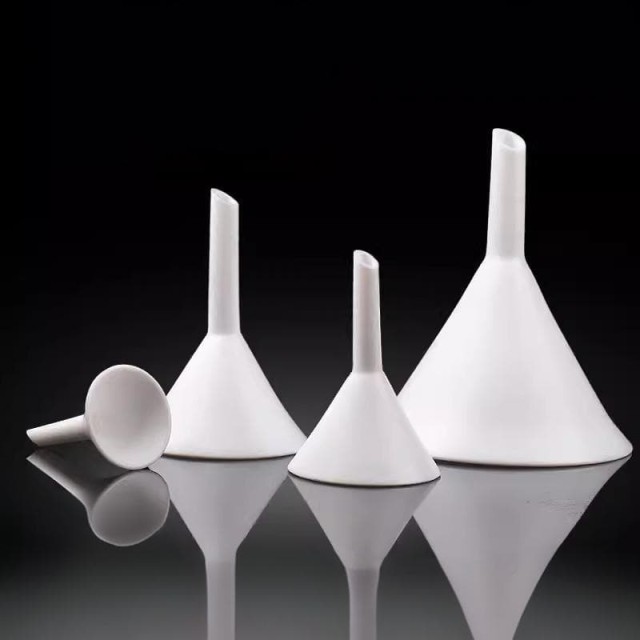
PTFE material
Custom PTFE Teflon Parts Manufacturer for PTFE Buchner Funnel and Triangular Funnel
Item Number : PTFE-30
Price varies based on specs and customizations
- Material
- PTFE
- Specification
- See the form
Shipping:
Contact us to get shipping details Enjoy On-time Dispatch Guarantee.
Why Choose Us
Easy ordering process, quality products, and dedicated support for your business success.
Introduction
PTFE funnels, known for their exceptional chemical resistance, high temperature tolerance, and non-stick properties, find extensive use across various industries. Here are the main application areas of PTFE funnels:
- Chemical Industry: PTFE funnels are crucial in laboratories and industrial settings where they are used for filtering and transferring corrosive chemicals.
- Pharmaceuticals: In pharmaceutical manufacturing and research, PTFE funnels are used for precise filtration and isolation of active pharmaceutical ingredients.
- Electronics: PTFE's low dielectric constant and high thermal stability make it suitable for use in the electronics industry. Funnels made from this material are used in the production and testing of electronic components where cleanliness and chemical resistance are paramount.
Details & Parts
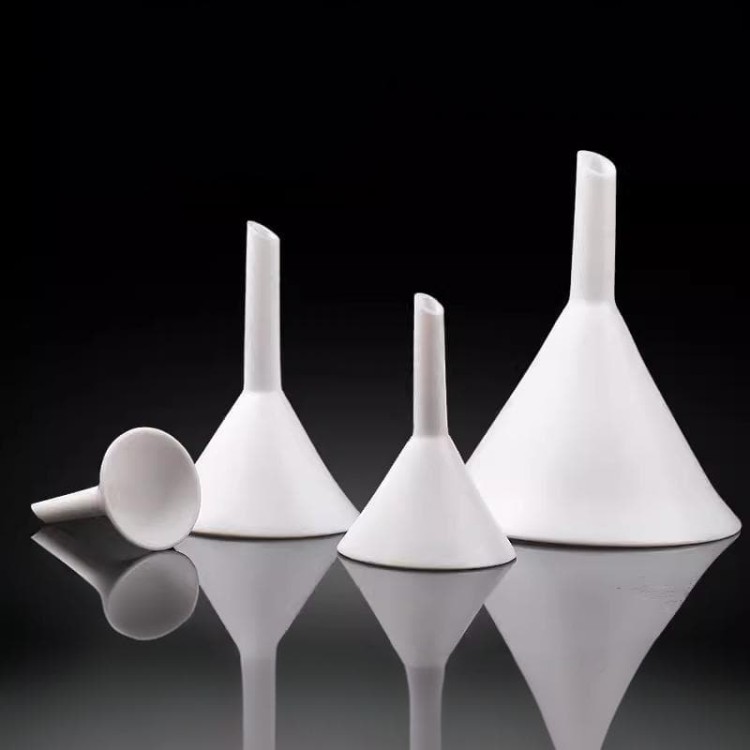
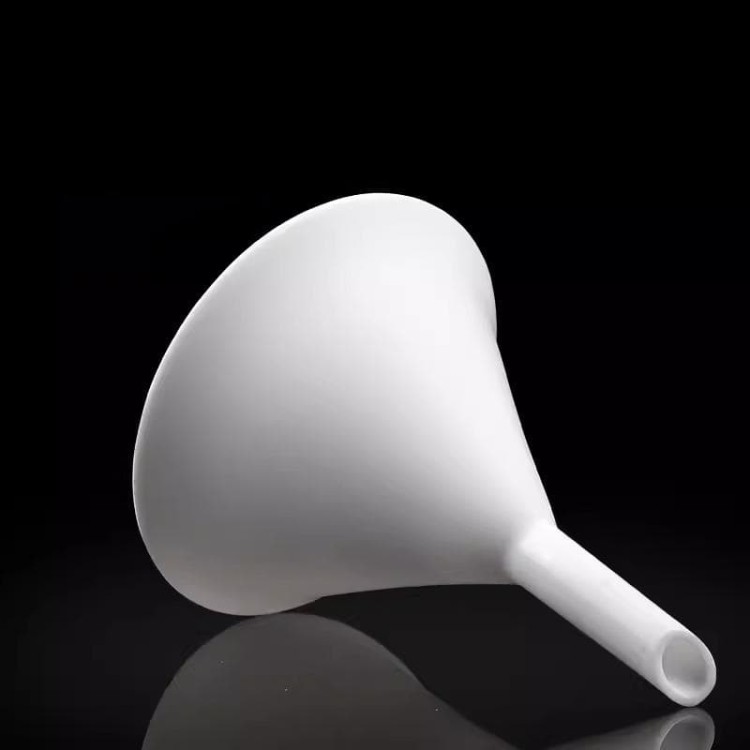
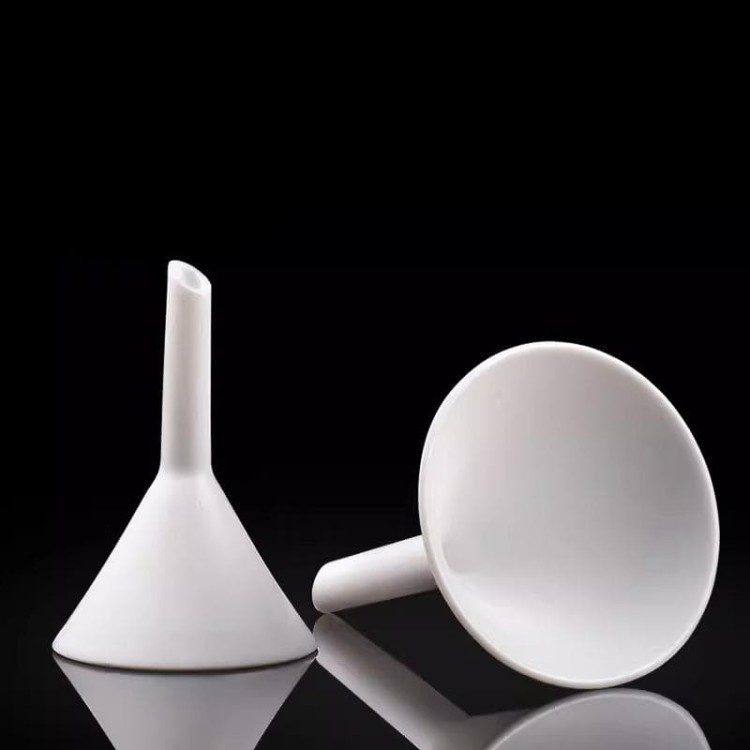
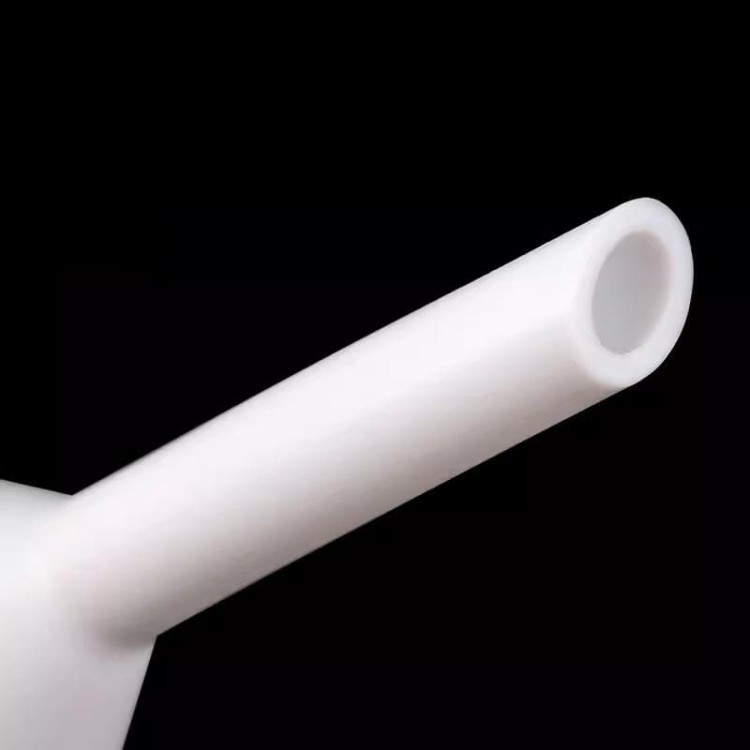
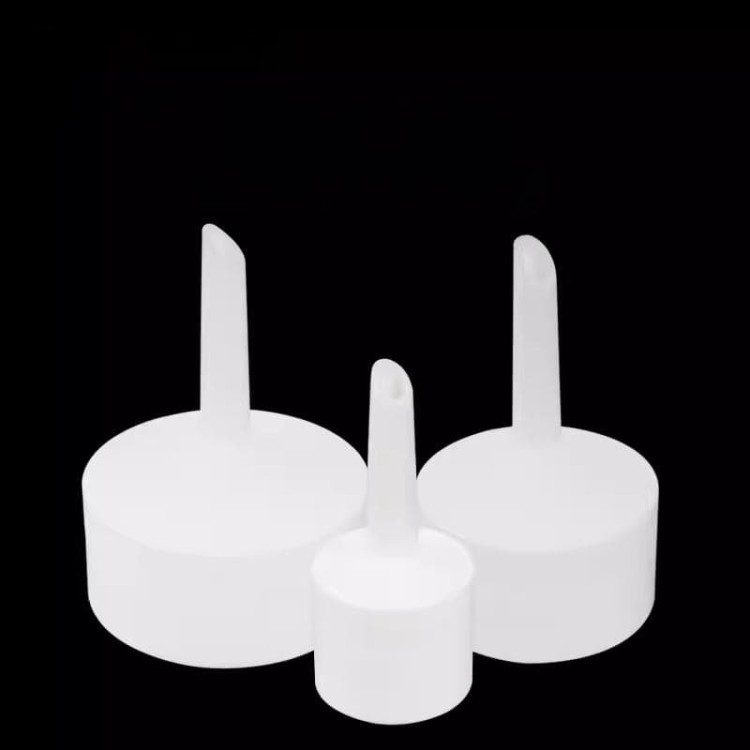

Technical specifications
PTFE Funnel:
| Model | Total height(mm) | Tube Inner Diameter(mm) | Outer diameter(mm) |
|---|---|---|---|
| 52mm | 95 | 7.2 | 52 |
| 80mm | 120 | 8.2 | 79 |
| 105mm | 148 | 11.5 | 101 |
| 160mm | 185 | 12.5 | 144 |
PTFE Buchner Funnel:
| Model | Total height(mm) | Outer diameter(mm) | Tube outer diameter(mm) |
|---|---|---|---|
| 50mm | 123 | 50 | 14.4 |
| 60mm | 127 | 60 | 14.4 |
| 70mm | * | 70 | * |
| 90mm | 145 | 90 | 14.4 |
| 100mm | 137 | 100 | 14.4 |
| 110mm | 143 | 110 | 16.5 |
| 120mm | * | 120 | * |
The size is for reference only, please refer to the actual product.
Advantages
PTFE funnels, made from polytetrafluoroethylene, offer a range of unique advantages that make them indispensable in various laboratory and industrial settings. Here are some of the key benefits:
- Chemical Resistance: PTFE is highly resistant to chemicals, including hydrofluoric acid, making it ideal for use in environments where corrosive substances are handled. This resistance ensures that the funnel does not degrade or react with the chemicals being filtered or transferred.
- Temperature Tolerance: PTFE can withstand extreme temperatures, with a working range up to 260º C. This makes PTFE funnels suitable for high-temperature applications without the risk of deformation or degradation.
- Low Coefficient of Friction: PTFE has an extremely low friction coefficient, which aids in the smooth flow of liquids through the funnel, reducing the likelihood of clogging and making it more efficient.
- Excellent Dielectric Properties: PTFE's outstanding electrical insulation properties make it suitable for use in applications involving electrical components or where electrical interference could be an issue.
Designed for You
KinTek provide deep custom made service and equipment to worldwide customers, our specialized teamwork and rich experienced engineers are capable to undertake the custom tailoring hardware and software equipment requirements, and help our customer to build up the exclusive and personalized equipment and solution!
Would you please drop your ideas to us, our engineers are ready for you now!
Trusted by Industry Leaders

FAQ
What Is The Purpose Of A Buchner Funnel In Laboratory Settings?
How Do I Set Up A Buchner Funnel For Vacuum Filtration?
What Are The Storage Recommendations For A PTFE Buchner Funnel?
How Should A PTFE Buchner Funnel Be Cleaned?
How Does A PTFE Buchner Funnel Differ From A Glass Or Plastic One?
How Does The Vacuum Pump Speed Affect The Filtration Process With A Buchner Funnel?
What Precautions Should I Take When Using A Buchner Funnel?
What Is A Thermal Element?
How Does A Thermal Element Work?
What Are The Advantages Of Using Thermal Elements?
What Are The Different Types Of Thermal Elements?
How Should Thermal Elements Be Calibrated And Maintained?
4.8 / 5
Exceptional chemical resistance!
4.7 / 5
High temperature tolerance is impressive.
4.9 / 5
Non-stick properties save time.
4.6 / 5
Perfect for corrosive substances.
4.8 / 5
Optically clear, great for monitoring.
4.7 / 5
Durable and safe alternative to glass.
4.9 / 5
Excellent dielectric properties.
4.6 / 5
Easy to sterilize, ideal for labs.
4.8 / 5
Low friction, efficient flow.
4.7 / 5
Inertness ensures sample purity.
4.9 / 5
Versatile for various applications.
4.6 / 5
Seamless connection, no leaks.
4.8 / 5
Compatible with vacuum systems.
4.7 / 5
Value for money, highly recommended.
REQUEST A QUOTE
Our professional team will reply to you within one business day. Please feel free to contact us!
Related Products
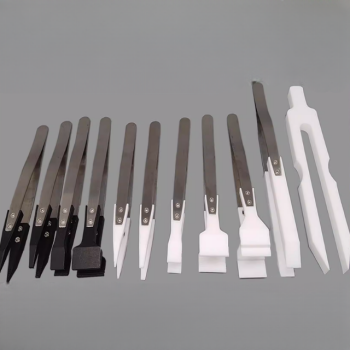
Custom PTFE Teflon Parts Manufacturer for PTFE Tweezers
PTFE tweezers inherit the excellent physical and chemical properties of PTFE, such as high temperature resistance, cold resistance, acid and alkali resistance, and corrosion resistance to most organic solvents.
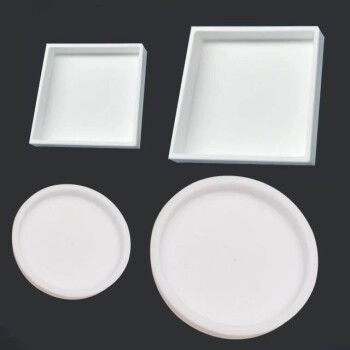
Custom PTFE Teflon Parts Manufacturer for PTFE Containers
PTFE container is a container with excellent corrosion resistance and chemical inertness.

Custom PTFE Teflon Parts Manufacturer for PTFE Measuring Cylinder 10/50/100ml
PTFE measuring cylinder are a rugged alternative to traditional glass cylinders. They are chemically inert over a wide temperature range (up to 260º C), have excellent corrosion resistance and maintain a low coefficient of friction, ensuring ease of use and cleaning.
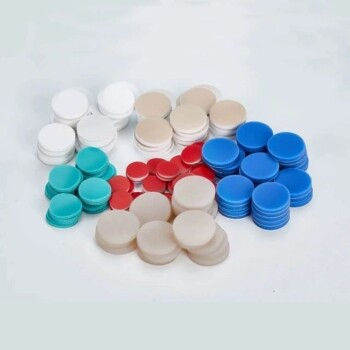
Custom PTFE Teflon Parts Manufacturer for Gaskets and More
Gaskets are materials placed between two flat surfaces to enhance the seal. To prevent fluid leakage, sealing elements are arranged between static sealing surfaces.
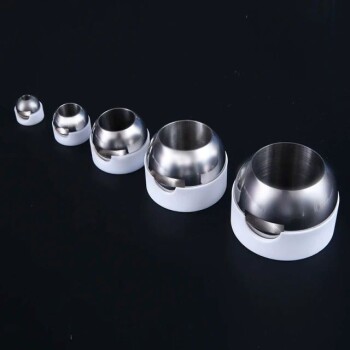
Custom PTFE Teflon Parts Manufacturer for PTFE Ball Valve Seat
Seats and inserts are vital components in the valve industry. As a key component, polytetrafluoroethylene is usually selected as the raw material.
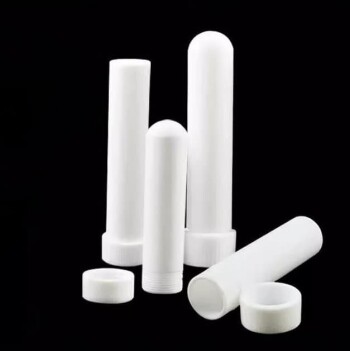
Custom PTFE Teflon Parts Manufacturer for Centrifuge Tubes
PTFE centrifugal tubes are highly valued for their exceptional chemical resistance, thermal stability, and non-stick properties, making them indispensable in various high-demand sectors. These tubes are particularly useful in environments where exposure to corrosive substances, high temperatures, or stringent cleanliness requirements are prevalent.
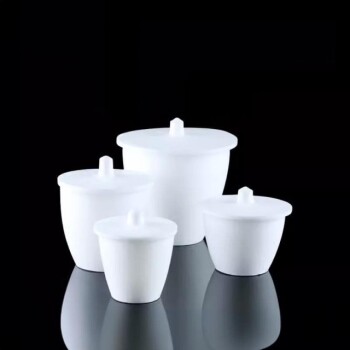
Custom Machined and Molded PTFE Teflon Parts Manufacturer with PTFE Crucible and Lid
PTFE crucibles, made from pure Teflon, offer chemical inertness and resistance from -196°C to 280°C, ensuring compatibility with a wide range of temperatures and chemicals. These crucibles feature machine-finished surfaces for easy cleaning and prevention of contamination, making them ideal for precise laboratory applications.
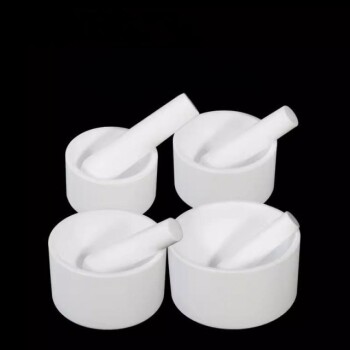
Custom PTFE Teflon Parts Manufacturer Grinding Bowl
PTFE is renowned for its exceptional chemical resistance, thermal stability, and low friction properties, making it a versatile material in various industries. The PTFE grinding bowl, specifically, finds applications where these properties are crucial.

Custom PTFE Teflon Parts Manufacturer F4 Conical Flask Triangular Flask 50 100 250ml
The PTFE triangular flask, also known as a Teflon reagent bottle, is a robust, chemical-resistant alternative to traditional glass bottles, suitable for handling both acids and alkalis. These bottles are unbreakable, lightweight, and feature a leak-proof screw cap, making them ideal for laboratory use.
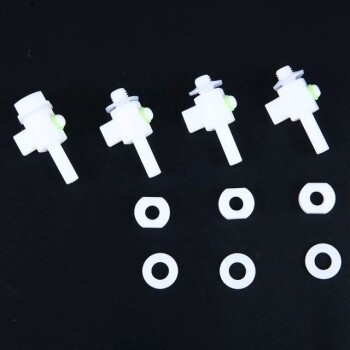
Custom PTFE Teflon Parts Manufacturer for Air Valve Applications
PTFE small air valve for gas-liquid sampling and sampling bag for sample collection.
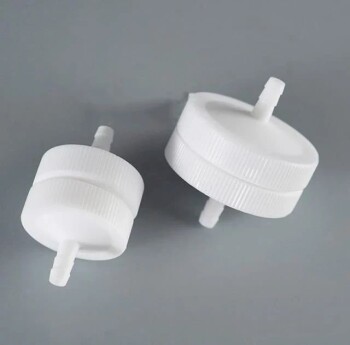
Custom PTFE Teflon Parts Manufacturer for Sampling Filters
PTFE filter element is a commonly used industrial filter element, mainly used to filter corrosive media such as high-purity chemical substances, strong acids, and strong alkalis.
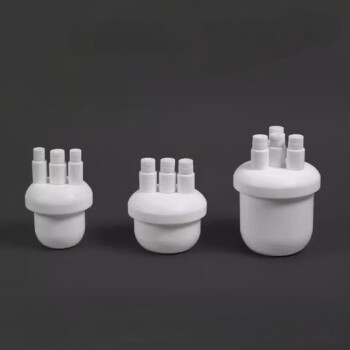
Custom PTFE Teflon Parts Manufacturer for Three-Necked Round Bottom Flask
PTFE flask, is a versatile laboratory container made from PTFE, offering exceptional chemical resistance, temperature stability, and non-stick properties. Ideal for handling corrosive substances and high-temperature applications, these flasks are essential in various laboratory procedures, including heating, mixing, and storage of chemicals.
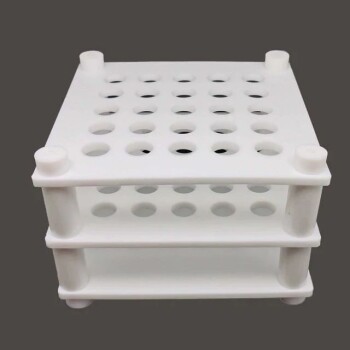
Custom PTFE Teflon Parts Manufacturer for Centrifuge Tube Racks
The precision-made PTFE test tube racks are completely inert and, due to the high temperature properties of PTFE, these test tube racks can be sterilized (autoclaved) without any problems.

Custom PTFE Teflon Parts Manufacturer for Magnetic Stirring Bar
The PTFE magnetic stirring bar, made from high-quality PTFE, offers exceptional resistance to acids, alkalis, and organic solvents, coupled with high-temperature stability and low friction. Ideal for laboratory use, these stirring bars are compatible with standard flask ports, ensuring stability and safety during operations.

Custom PTFE Teflon Parts Manufacturer PTFE Beaker and Lids
The PTFE beaker is a laboratory container that is resistant to acid, alkali, high and low temperatures and is suitable for temperatures ranging from -200ºC to +250ºC. This beaker has excellent chemical stability and is widely used for heat treatment samples and volume analysis.
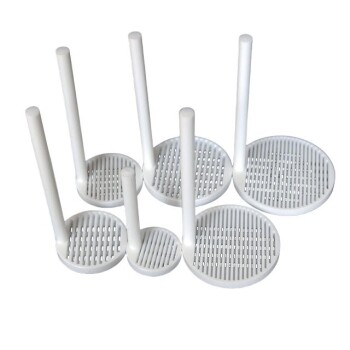
Custom PTFE Teflon Parts Manufacturer for Cleaning Racks
PTFE cleaning racks are mainly made of tetrafluoroethylene. PTFE, known as the "King of Plastics", is a polymer compound made of tetrafluoroethylene.

Custom PTFE Teflon Parts Manufacturer for Culture Dish and Evaporation Dish
The PTFE culture dish evaporating dish is a versatile laboratory tool known for its chemical resistance and high-temperature stability. PTFE, a fluoropolymer, offers exceptional non-stick properties and durability, making it ideal for various applications in research and industry, including filtration, pyrolysis, and membrane technology.
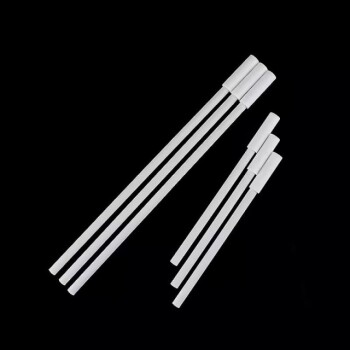
Custom PTFE Teflon Parts Manufacturer for PTFE Stirring Bar Recovery Rod
This product is used for stirrer recovery, and is resistant to high temperature, corrosion, and strong alkali, and is almost insoluble in all solvents. The product has a stainless steel rod inside and a polytetrafluoroethylene sleeve outside.
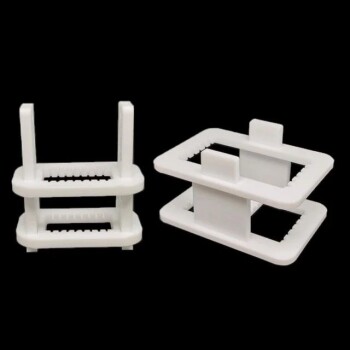
Custom PTFE Teflon Parts Manufacturer for Conductive Glass Substrate Cleaning Rack
The PTFE conductive glass substrate cleaning rack is used as the carrier of the square solar cell silicon wafer to ensure efficient and pollution-free handling during the cleaning process.
Related Articles

Chemical Vapor Deposition (CVD) Process and High Purity PFA Tubing
An overview of the CVD process and the role of high purity PFA tubing in semiconductor manufacturing.

Applications of Dry Cold Traps in Various Processes
Dry cold traps are used in multiple applications to condense and collect gases, protecting equipment and improving process efficiency.

Molecular Distillation: An Efficient Separation and Purification Technology
Explore the principles, applications, and benefits of molecular distillation in various industries.

The Architecture of Silence: Purity in the Five-Port Cell
Preventing contamination is not just about cleaning; it is about system management. Master the protocols for glass and PTFE to ensure electrochemical precision.

Performance and application of polytetrafluoroethylene (PTFE) in high temperature environment

Basic Laboratory Centrifuge Equipment
Overview of different types of centrifuges used in laboratories.

The Invisible Variable: Selecting the Heart of Your Vacuum Furnace
The heating element isn't just a component; it dictates your furnace's chemistry. Explore the engineering trade-offs between Graphite, Molybdenum, and Composites.

Advanced International Plant Extraction Science and Technology
Exploring cutting-edge methods in essential oil extraction, including supercritical CO2, supramolecular, and targeted extraction techniques.

The Geometry of Cleanliness: Why Surface Integrity Defines Electrochemical Success
Master the art of electrolytic cell maintenance. Discover how a tiered cleaning protocol prevents contamination and ensures experimental reproducibility.

Rotary Evaporator and Its Application in Traditional Chinese Medicine Refinement
Explores the use of rotary evaporators in the concentration and refinement of traditional Chinese medicine extracts, detailing equipment selection, operation principles, and safety considerations.